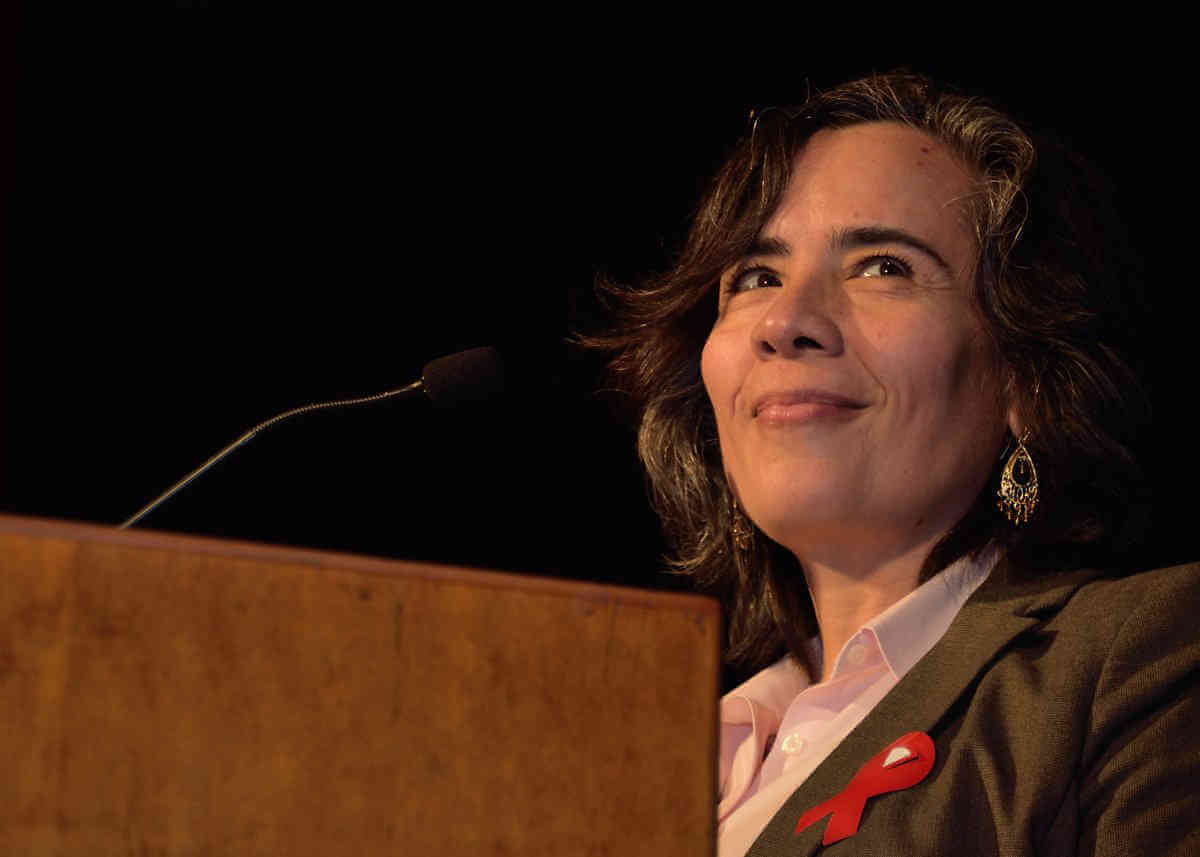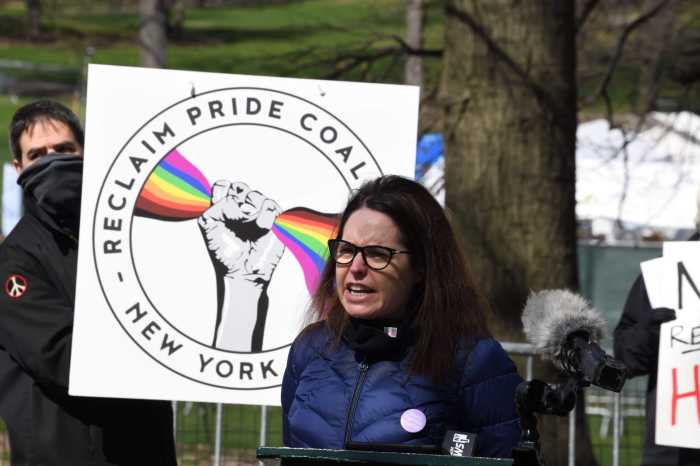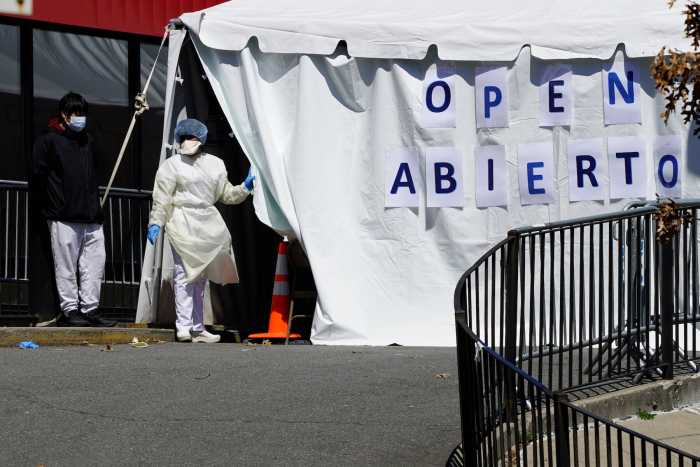We didn’t see this one coming!
The city’s Department of Health has updated its guidance on best sexual practices during the coronavirus pandemic — and this time it’s giving a hole new meaning to protective barriers.
“Make it a little kinky: Be creative with sexual positions and physical barriers, like walls, that allow sexual contact while preventing close face to face contact,” the department stated in new recommendations issued during Pride Month.
In other words, glory holes.
The guidance was rolled out as part of the department’s ongoing response to the coronavirus pandemic, which now also includes home delivery of free HIV self-test kits, condoms, and lube.
Health Commissioner Dr. Oxiris Barbot, in a written statement, said, “We must find alternative solutions to maintaining public health support for all New Yorkers,” while the out queer assistant commissioner for the health department’s HIV bureau, Dr. Oni Blackstock, offered a dose of reality in a world where many people will continue having sex.
“Even during a global pandemic, sex remains an important part of overall health and well-being for many people,” Blackstock said.
The new guidance, which adds onto the department’s suggestions from earlier in the crisis, also recommends that people have sex in “larger, more open, and well-ventilated spaces.”
Interpret that however you wish!
While the health department recommends masturbation or people only having sex with those who are closest to them, it acknowledges that there are many folks who are unwilling to stick to that — including sex workers — and as the city opens up and the weather heats up, New Yorkers are likely to increase sexual activity.
“If you do have sex with others outside of your household, have as few partners as possible and pick partners you trust,” the guidance states. “Talk about COVID-19 risk factors, just as you would discuss PrEP, condoms, and other safer sex topics. Ask them about COVID-19 before you hook up.”
That means asking partners whether they have symptoms of COVID-19 or have had symptoms in the last two weeks, or whether they have been diagnosed with COVID-19 before. The department warns New Yorkers not to assume that a sex partner who had COVID-19 and already recovered is not able to get sick again or can’t transmit the virus.
“Be cautious in using these tests to make decisions about who you have sex with and what kind of sex you have since antibody test results are not definite proof of immunity,” the department states.
And while the city reminds New Yorkers that large gatherings are not safe during the coronavirus pandemic, they said those who do wind up having sexual gatherings with multiple people should “wear a face covering, avoid kissing, and do not touch your eyes, nose, or mouth with unwashed hands.”
“Maybe it’s your thing, maybe it’s not, but during COVID-19 wearing a face covering that covers your nose and mouth is a good way to add a layer of protection during sex,” the guidance states. “Heavy breathing and panting can spread the virus further, and if you or your partner have COVID-19 and don’t know it, a mask can help stop that spread.”
Individuals who do have sexual contact with those outside of their immediate household are encouraged to get coronavirus tests once per month or within five to seven days following a hookup. Those who are feeling unwell or have been exposed to a person with COVID-19 should skip sex entirely, the city says.
The city also suggests you may want to skip sex altogether if you or your partner has comorbidities that could contribute to a more severe case of COVID-19, including lung disease, moderate to severe asthma, diabetes, heart disease, or a weakened immune system due to unsuppressed HIV or a low CD4 count.
The guidance reiterated its message from April encouraging folks to pursue alternative sexual options, such as video chats. Condoms remain also important, not just for well-established reasons such as preventing the transmission of sexually transmitted infections or preventing pregnancy, but also because condoms can also serve as a barrier to reduce the exchange of bodily fluids at a time when medical experts still do not know whether the virus can be transmitted sexually. The health department, for example, said rimming “might spread the virus.”
Of course, the guide also underscores the importance of washing hands for at least 20 seconds before and after sex to prevent the spread of coronavirus.
To sign up for the Gay City News email newsletter, visit gaycitynews.com/newsletter.



































